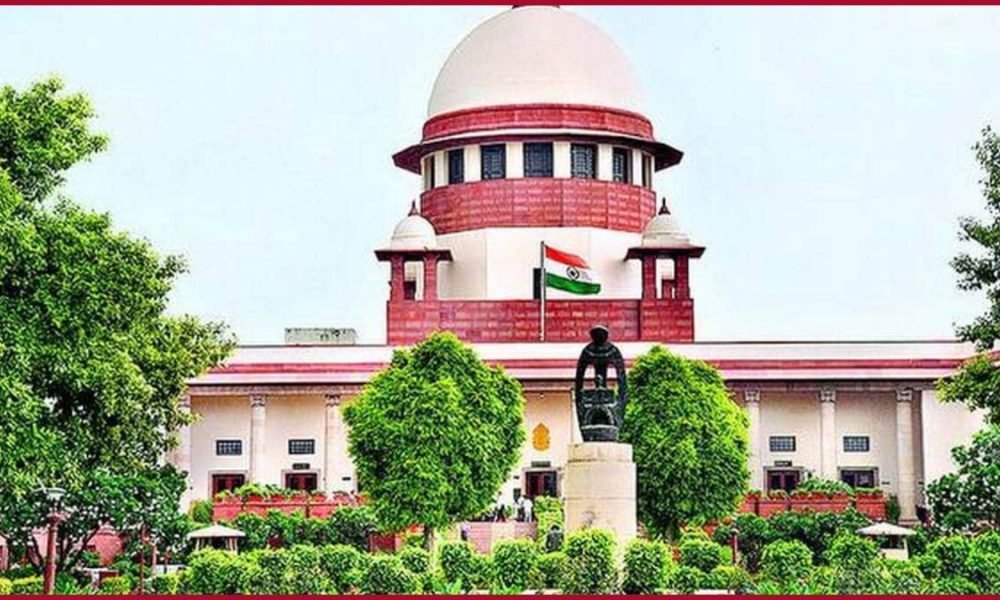
New Delhi: A five-judge Constitution bench of the Supreme Court on Wednesday began hearing on a batch of petitions challenging the abrogation of Article 370 and bifurcation of the erstwhile state of Jammu and Kashmir into two Union territories.
Senior advocate Kapil Sibal, appearing on behalf of the petitioners, opened the arguments saying Article 370 was no longer a “temporary provision” and it had assumed permanence post the dissolution of the Constituent Assembly of Jammu and Kashmir. The Constitution bench comprising Chief Justice of India DY Chandrachud, Justices Sanjay Kishan Kaul, Sanjiv Khanna, BR Gavai, and Surya Kant asked Sibal about who can recommend the revocation of Article 370 in Jammu and Kashmir when no Constituent Assembly exists there.
How can a provision (Article 370), which was specifically mentioned as a temporary provision in the Constitution, become permanent after tenure of the Jammu and Kashmir Constituent Assembly came to an end in 1957, asked the bench.
He contended that the Parliament could not have declared itself to be the legislature of J&K in order to facilitate the abrogation of Article 370 as Article 354 of the Constitution does not authorise such an exercise of power.
Highlighting that the express terms of clause 3 of Article 370 show that a recommendation from the Constituent Assembly was essential to remove Article 370, Sibal argued that in the wake of the dissolution of the Constituent Assembly whose recommendation was required to abrogate Article 370, the provision could not be revoked.
“Through a political act, Article 370 was tossed out of the window. This was not a Constitutional act. Parliament took upon itself the role of constituent assembly and revoked Article 370 saying it is exercising the will of the people of Jammu and Kashmir. Can such a power be exercised?” asked Sibal.
Sibal commenced his arguments highlighting the uniqueness of Jammu and Kashmir’s relationship with India. He questioned whether such a relationship could be discarded abruptly.
Senior advocate said that with integration of Jammu and Kashmir into India, Constitution envisaged a special relationship with the Jammu and Kashmir.
Earlier, the Central government had defended its decision to abrogate Article 370 from Jammu and Kashmir saying post the changes, street violence, which was engineered and orchestrated by terrorists and secessionist networks has now become thing of past.
Since 2019, when Article 370 was abrogated, the entire region has witnessed an “unprecedented era of peace, progress and prosperity”, Centre had said.
After the abrogation of Article 370 from Jammu and Kashmir life has returned to normalcy there after three decades of turmoil, the Centre in its affidavit had told the Supreme Court.
It had said that schools, colleges and universities are functioning without any strikes during the last three years.
Various petitions are pending before the top court challenging the validity of law scrapping Article 370 of the Constitution and special status to Jammu and Kashmir and bifurcating the state into two Union Territories.
On August 5, 2019, the Central government announced its decision to revoke the special status of Jammu and Kashmir granted under Article 370 and split the region into two Union territories.
A five-judge Constitution bench in March 2020 had declined to refer to a larger 7-judge bench a batch of petitions challenging the Constitutional validity of the Centre’s decision to abrogate provisions of Article 370 on August 5, saying there were no reasons to refer the matter to a larger bench.
A number of petitions have been filed in the top court including those of private individuals, lawyers, activists and politicians and political parties challenging the Jammu and Kashmir Reorganisation Act, 2019, which splits Jammu and Kashmir into two Union Territories — Jammu and Kashmir, and Ladakh.




